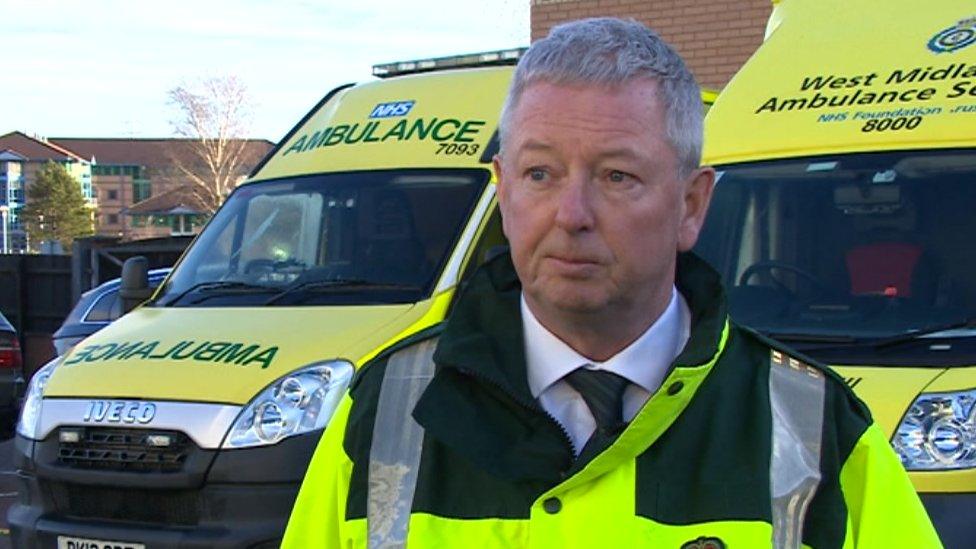Patient has cardiac arrest waiting outside Worcestershire hospital in ambulance
- Published
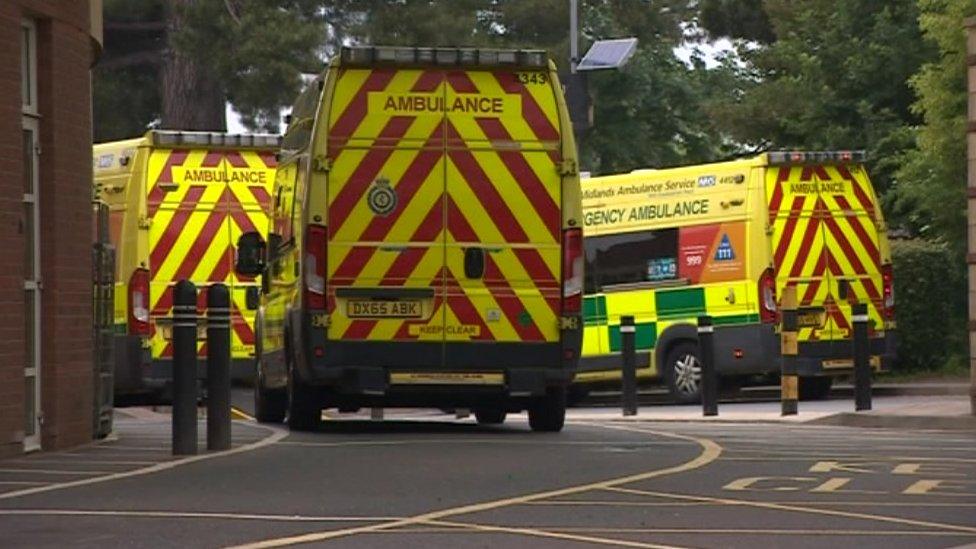
At the time of the cardiac arrest on Tuesday, 16 ambulances were waiting outside the Worcestershire Royal
A patient had a cardiac arrest in an ambulance after waiting an hour outside a hospital in the heatwave, it's been confirmed.
It has not been revealed if the man survived after being admitted to Worcestershire Royal Hospital on Tuesday.
Nobody from the hospital checked the patient before the cardiac arrest, the ambulance service said.
The hospital said it was "reviewing the circumstances" around what happened.
At the time of the incident on Tuesday, there were 16 ambulances outside the hospital as temperatures reached more than 37C in Worcestershire.
Another patient in the care of an ambulance crew was still waiting for a bed more than 12 hours after being brought in at about 05:00 BST.
The call to the first patient by West Midlands Ambulance Service was a category two emergency which meant they would aim to get an ambulance to him within 18 minutes.
Due to the delays caused by ambulances being unable to discharge patients at overstretched hospitals, the service said it took two hours to reach him.
The crew arrived at 17:24 on Tuesday and the patient was at the hospital by 18:07 where, after an hour, he suffered the cardiac arrest.
The ambulance service said his condition "deteriorated quickly" and added they would support any investigation by Worcestershire Royal Hospital.
Matthew Hopkins, chief executive of Worcestershire Acute Hospitals NHS Trust, said they could not comment on individual cases but would review what happened.
"Demand on our hospital services remains very high with our staff facing unprecedented numbers of patients seeking urgent and emergency care," he added.
In June, a 91-year-old man had to wait more than 24 hours to be admitted to the Worcestershire Royal after calling for an ambulance.
In May, an ambulance boss said an increasing number of people were waiting in the back of ambulances for 24 hours before being admitted.
The cases are part of an eight-year history of concern at the trust reported by the BBC, including long waits and the use of corridors to care for patients over several years.
The trust was also in special measures for four years, until 2019.

Follow BBC West Midlands on Facebook, external, Twitter, external and Instagram, external. Send your story ideas to: newsonline.westmidlands@bbc.co.uk, external
- Published27 June 2022
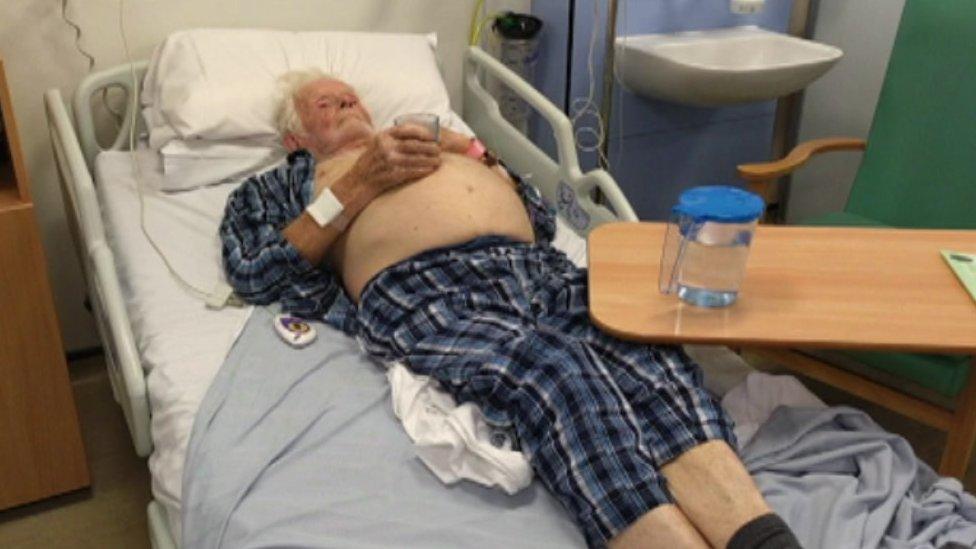
- Published16 June 2022
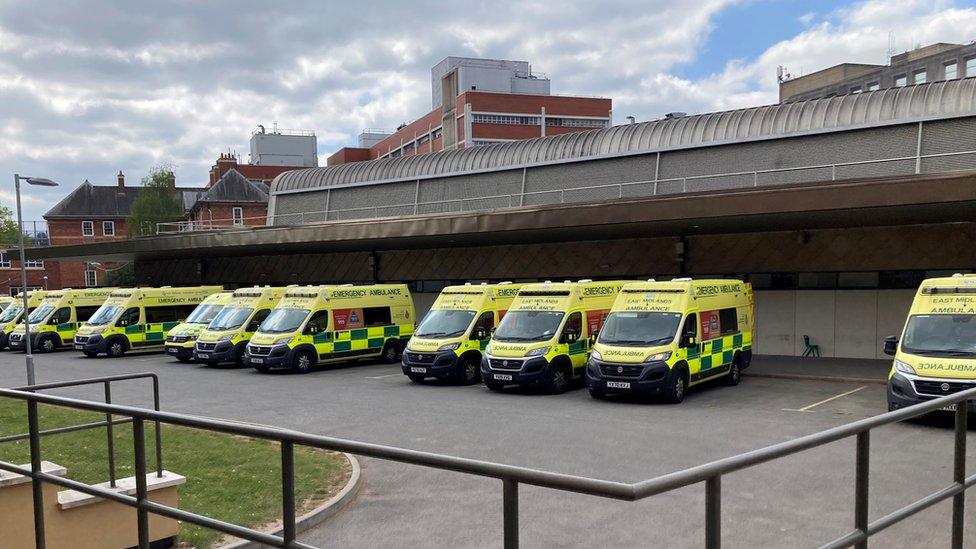
- Published15 June 2022
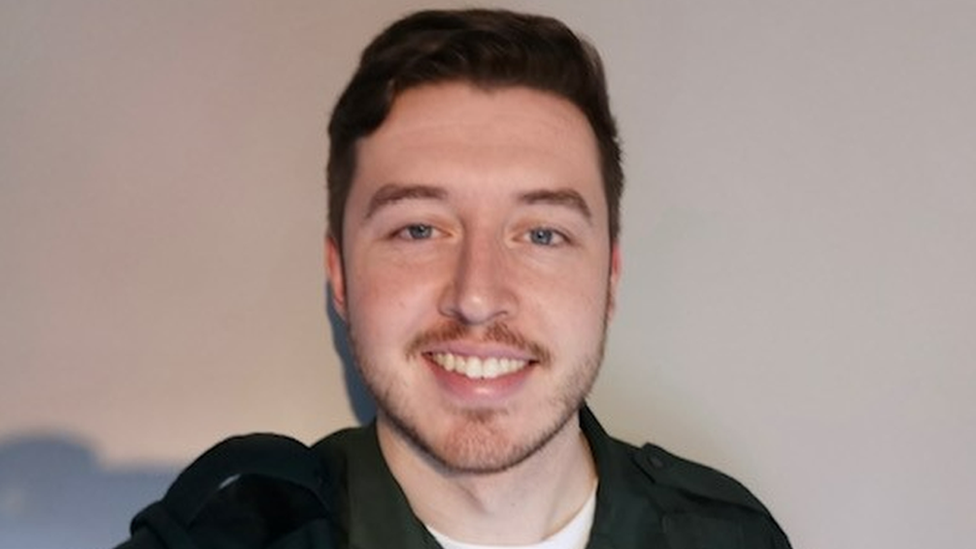
- Published9 June 2022
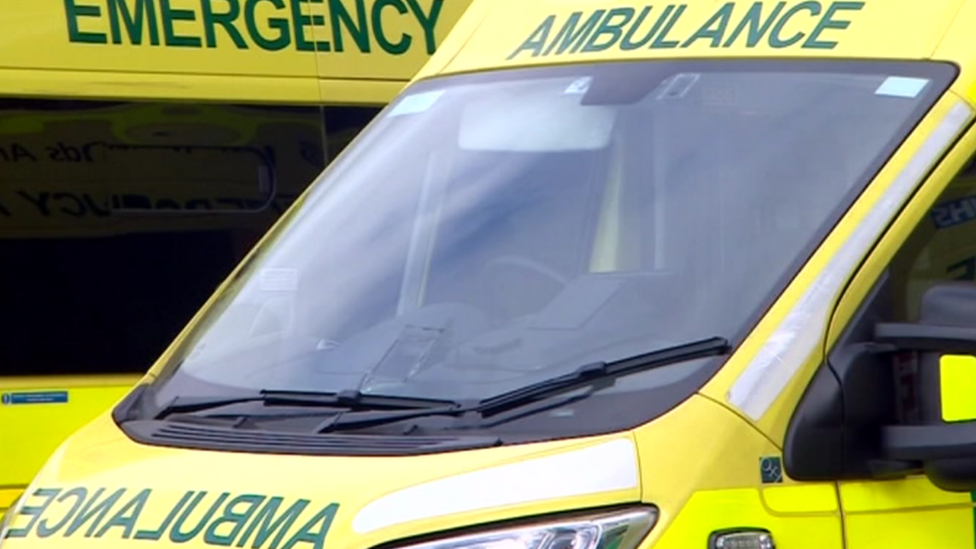
- Published25 May 2022
